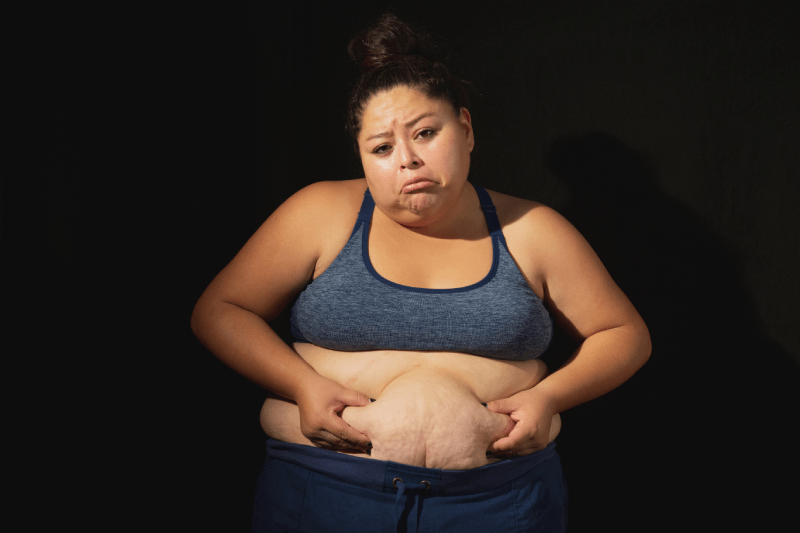Obesity is one of the most serious health problems of the modern world, threatening an individual’s quality of life, mobility, and general health. In cases where diet and exercise are insufficient, Gastric Sleeve surgery stands out as a permanent and effective solution. However, when making this life-changing decision, the cost of the operation, the surgeon’s experience, and the post-operative support provided are vitally important.
In this comprehensive blog post, we will compare the costs of Gastric Sleeve surgery in Dublin, Ireland, with the much more affordable, yet internationally high-quality options offered by Turkey, focusing specifically on the comprehensive medical tourism packages provided by Cure Holiday. At the end of this analysis, you will have a clear roadmap on why you should choose Turkey and Cure Holiday for your new beginning in obesity treatment.
The Unsatisfiable Effect of Genetic Predisposition
One of the most fundamental and often underestimated causes of weight gain is a person’s underlying genetics. A strong family history of obesity can significantly influence an individual’s basal metabolic rate, their inherent tendency for fat storage, and even how their body processes certain nutrients and responds to crucial appetite-regulating hormones like leptin and ghrelin.
This biological blueprint means some people are predisposed to gaining weight more easily and struggling more intensely to sustain weight loss compared to others, regardless of consistent lifestyle choices. This genetic inheritance acts as the primary, deep-rooted factor that makes the lifelong fight against severe obesity an incredibly challenging battle, even when healthy lifestyle efforts are consistently applied.

Hormonal Imbalances and Metabolic Rate
Hormonal disorders such as thyroid problems, Polycystic Over Syndrome (PCOS), or cortisol (stress hormone) imbalances can cause weight gain by slowing down the metabolic rate and increasing appetite significantly. Insulin resistance, in particular, leads the body to improperly utilize glucose, preventing it from entering cells for energy and instead triggering the body to start storing excess energy as fat.
These complex hormonal factors indicate clearly that obesity is often not merely a simple problem of overeating but rather the result of deep-seated and complex biological processes that require medical intervention. Addressing these underlying issues is often a prerequisite for surgical success.
The Hidden Danger of a Sedentary Lifestyle
Modern life has unfortunately minimized the need for physical activity across the general population, making it easier than ever to live a highly sedentary lifestyle. Long hours spent working at a desk, combined with the prevalent habit of spending leisure time in front of television or digital screens, significantly reduce the amount of calories the body burns daily. This fundamental imbalance between calorie intake and the drastically reduced expenditure of energy leads to a significant energy surplus, which the body inevitably stores as fat, ultimately resulting in the widespread progression of obesity across all age groups.
Emotional Eating and the Body’s Reflection of Stress
Emotional states such as chronic stress, sadness, intense boredom, or feelings of loneliness frequently trigger the destructive habit of “emotional eating” in many individuals struggling with weight. Foods, particularly those that are highly processed, high in calories, and rich in sugar, provide a quick but temporary feeling of comfort and relief by stimulating the brain’s reward centers.
Moreover, chronic, unmanaged stress causes the cortisol hormone—the primary hormone responsible for promoting fat storage—to remain continuously elevated, unfortunately combining the behavioral pattern of emotional eating with a profound underlying biological problem.
The Addictive Power of Highly Processed Foods
The vast majority of highly processed foods found on supermarket shelves, which include everything from ready-to-eat meals to packaged snacks and fast food, typically contain excessive amounts of easily absorbed sugar, unhealthy trans fats, and sodium. These engineered foods are designed to stimulate the brain’s reward centers powerfully, which in turn creates a strong sense of food addiction and actively suppresses the body’s natural feeling of satiety or fullness. This powerful neurological and chemical cycle leads directly to a continuous and accelerating pattern of overeating, thereby setting the biological and behavioral stage for the rapid progression of severe obesity.
The Impact of Sleep Quality on Weight Control
Inadequate or chronically poor-quality sleep, a common problem in today’s fast-paced society, profoundly disrupts the delicate balance of appetite-regulating hormones in the body. Specifically, levels of Ghrelin, commonly known as the hunger hormone, rise dramatically, while levels of Leptin, the crucial satiety hormone that signals fullness, simultaneously drop. This fundamental hormonal change results in an intense physiological urge to consume significantly more calories the following day, pushing the individual, in particular, to gravitate towards foods that are calorie-dense, often rich in carbohydrates and fats, further exacerbating weight gain.
Traces of Childhood Nutrition Habits
The deeply ingrained tendency for long-term weight gain often originates in early childhood, starting with the acquisition of detrimental eating habits. A failure to learn proper portion control from a young age, coupled with the encouragement of continuous consumption of highly sugary snacks and a general lack of regular physical activity, leads to an increase in both the number and the size of fat cells. This early cellular programming sets the inevitable stage for adult obesity, making the subsequent attempts at sustained weight loss during later life significantly more challenging and difficult to maintain without medical assistance.
The Triggering Role of Certain Medications in Obesity
It is well-established that certain medical treatments and prescribed medications can have the significant side effect of causing hair loss or metabolic changes leading to weight gain. Medications such as some antidepressants, anticonvulsants, steroids (corticosteroids), and even insulin used in diabetes treatment can either increase the patient’s appetite dramatically or cause a clinically significant decrease in their overall metabolic rate. It is critically important for individuals who are actively struggling with obesity to maintain an open and detailed discussion with their prescribing doctors regarding the potential weight-related effects of their long-term medications before undergoing any bariatric procedure.
Metabolism Slowing Down with Age
As an individual naturally progresses through the years and age advances, there is an unavoidable and predictable decrease in the body’s overall muscle mass, which in turn causes the vital resting metabolic rate (RMR) to drop. This fundamental biological fact means that even if a person maintains the exact same level of physical activity and the same amount of food consumption as in their younger years, their tendency to gain weight will inevitably increase. To prevent this type of age-related weight gain, it becomes necessary to incorporate more intense physical activity and implement a stricter, more focused calorie restriction plan, highlighting the difficulty of maintaining weight without intervention.
Social Environment Pressure on Eating Culture
Social settings, whether they be large family celebrations, professional gatherings, or simply dining out, frequently introduce a subtle yet powerful pressure to overeat or to consume foods that are knowingly unhealthy. The immediate social environment plays a surprisingly significant and direct role in influencing an individual’s daily nutritional decisions. Continuously being in environments where high-calorie, processed, or large-portioned foods are standard can easily sabotage long-term weight loss goals and undermine the best efforts of an individual committed to a strict diet regimen.
What is Gastric Sleeve Surgery and How Does It Work?
Gastric Sleeve surgery involves the precise surgical removal of approximately $80\%$ of the patient’s stomach. The remaining portion is stapled and left as a thin, vertically oriented stomach tube, which often resembles the shape of a banana. Critically, this laparoscopic procedure achieves a dual effect that maximizes the chances of successful, sustainable weight loss. First, it physically restricts the amount of food a person can consume at one time due to the significantly reduced stomach volume. Second, it removes the area of the stomach responsible for producing the Ghrelin hormone, which largely controls appetite, thereby dramatically reducing the patient’s feeling of hunger.

Who is Suitable for Gastric Sleeve Surgery?
Gastric Sleeve surgery is generally reserved for individuals who meet specific medical criteria designed to maximize surgical safety and long-term success. Primarily, candidates include those with a Body Mass Index (BMI) of $40$ or higher, or those with a BMI of $35$ or higher who also suffer from serious co-morbidities directly related to their obesity, such as type 2 diabetes, severe hypertension (high blood pressure), or obstructive sleep apnea. Beyond the physical criteria, potential candidates are stringently expected to be psychologically and physically prepared for, and capable of, adhering to the lifelong dietary and lifestyle changes required after the operation to ensure sustained success.
What Preparations Are Necessary Before Surgery?
The extensive pre-operative period for Gastric Sleeve surgery is considered the cornerstone of achieving long-term success. It mandates a comprehensive medical evaluation, including examinations by internal medicine, cardiology, pulmonology, and a mandatory psychiatric specialist to ensure full psychological readiness. Preparation for the complex post-operative nutrition plan is initiated through multiple dietitian consultations. Furthermore, patients are typically required to follow a very specific, low-calorie liquid diet for a few weeks leading up to the procedure to shrink the size of the liver, which is vital for safe and easier surgical access.
The Long-Term Effect of Gastric Sleeve Against Obesity
The powerful long-term effect of Gastric Sleeve surgery is its ability to enable patients to achieve a dramatic and sustained weight reduction, typically losing between 60%$ to 80% of their excess weight within the first $12$ to $18$ months following the operation. The immediate reduction in stomach volume, combined with the effective, lasting suppression of the Ghrelin hormone production, provides the patient with excellent, long-term appetite and portion control. Crucially, the ultimate success of the surgery depends entirely on the patient’s commitment to viewing the operation not as a cure, but as a starting point for adopting fundamental and non-negotiable healthy habits for the rest of their lives.
Is Gastric Sleeve Surgery a Permanent Solution?
Gastric Sleeve surgery is undeniably a powerful and highly effective tool against the medical disease of obesity, offering a permanent alteration to the gastrointestinal anatomy. However, no matter how effective the surgical intervention is, it must never be viewed as a “magic wand” that eliminates responsibility.
While the stomach’s anatomical size is permanently reduced, the patient retains the potential to consume small, frequent portions of high-calorie liquid foods or to graze continuously, which can cause the small remaining stomach to stretch slightly over many years. This constant behavioral failure increases the long-term risk of regaining weight. True success is only achieved and maintained through the harmonious combination of surgical intervention and unwavering lifestyle commitment.
What Should the Post-Operative Nutrition Regimen Be?
The nutrition regimen following Gastric Sleeve surgery is a tightly controlled, gradual, and extremely strict process that is non-negotiable. It typically begins with a two-week period of an all-liquid diet, which then slowly progresses to smooth pureed foods, followed by softer consistency foods, before finally introducing solid foods after approximately four to six weeks. The fundamental principles of this new nutritional life are: consistently eating very small portions, chewing food slowly and meticulously until it is almost liquid, strictly separating liquid consumption from solid meals by half an hour, and placing a massive focus on achieving high daily protein intake to preserve muscle mass.
Is There a Risk of Regaining Weight After Gastric Sleeve?
Yes, there is an inherent risk of regaining some weight, but in the overwhelming majority of cases, this unfortunate outcome stems not from a failure of the operation itself, but rather from a profound failure to adhere to the strict, necessary lifestyle rules. Approximately 15% to 20% of patients may regain a clinically significant amount of weight within 5 years of the operation, often due to returning to high-sugar liquid calories or habitual grazing. To minimize this persistent risk, it is absolutely essential to maintain regular physical activity, adhere strictly to continuous dietitian follow-up sessions, and engage in psychological support programs for emotional eating control.
Possible Side Effects and Complications of the Surgery
Like any major surgical procedure, Gastric Sleeve surgery carries a minimal, but present, risk of potential side effects and complications. These risks include wound infection at the incision sites, internal or external bleeding, the critical risk of a staple line leak (where digestive fluids escape), the formation of blood clots (deep vein thrombosis), and risks directly associated with general anesthesia. Fortunately, serious complication rates are extremely low, often around 1%. However, the presence of an exceptionally experienced bariatric surgeon and a fully equipped hospital environment, including a functioning Intensive Care Unit, is critical to rapidly and effectively minimizing these potential risks.
Modern Techniques Used in Gastric Sleeve Surgery
In contemporary bariatric practice, Gastric Sleeve surgeries are almost exclusively performed using the laparoscopic (often termed “keyhole”) method, which represents a massive advancement in patient safety and recovery. This minimally invasive technique involves performing the entire operation by inserting specialized instruments through just a few small incisions on the abdomen, rather than a single large cut.
The laparoscopic technique offers numerous significant advantages, including dramatically reduced post-operative pain, a substantially shorter required hospital stay, and a much faster, less painful recovery period, allowing patients to return to their normal daily lives far sooner than with traditional open surgery.
Why is Post-Operative Psychological Support Important?
Gastric Sleeve surgery initiates not just a physical transformation but also a profound and often turbulent psychological change process within the patient. Consistent psychological support is vitally important to assist patients in coping with the rapid, dramatic changes in their body image, the necessity of relinquishing long-standing emotional eating habits (their primary coping mechanism), and managing the immense social eating pressure encountered in daily life. This robust psychological support structure ensures that the patient successfully and smoothly adapts to their demanding new life structure, securing the behavioral commitment that ultimately dictates the operation’s long-term success and sustainability.
Ireland Dublin Gastric Sleeve Prices: The Reality Behind the High Cost
Dublin is firmly established as one of the most expensive capital cities in Europe, and this high cost of living is directly and unfortunately reflected in the costs associated with all private healthcare services. The average cost of undergoing Gastric Sleeve surgery in a qualified private hospital in Ireland, highly dependent on the service scope and the specific hospital, typically ranges drastically between €10,000 and €18,000. This exorbitant pricing usually covers only the fundamental surgical procedure, a basic $1-2$ day hospital stay, and the core surgeon’s fee, leaving a long list of essential follow-up costs entirely excluded.
Quality Standards of Bariatric Surgery in Dublin
Private bariatric clinics operating in Dublin adhere meticulously to the strictest international medical standards and often hold relevant European Bariatric Surgery certifications, guaranteeing a high level of surgical safety and patient care. However, when contrasted with the major bariatric centers in Turkey’s large metropolitan areas, the volume, intensity, and sheer variety of bariatric surgery cases handled in Dublin are statistically lower. Since surgical excellence is a field perfected by high-volume practice, particularly for developing the necessary skill for complex cases and minimizing complications, this lower case volume in Dublin clinics can be considered a subtle disadvantage in overall surgeon experience.

Long Waiting Times Despite High Costs
Access to publicly funded obesity surgery through the Health Service Executive (HSE) in Ireland is notoriously difficult, with waiting lists extending for multiple years, posing significant health risks to patients in urgent need. Even within the private sector, where costs are already extremely high, appointments with the most sought-after and experienced leading bariatric surgeons can still require waiting periods of several months due to the high domestic demand. This unacceptable length of time spent waiting for treatment creates a major health and psychological risk for patients whose co-morbidities are rapidly worsening and require immediate surgical intervention.
The Effect of Accommodation and Living Expenses in Dublin on the Total Price
For patients who do not already reside in Dublin and must travel there for surgery, the extremely high costs associated with accommodation and general living expenses significantly multiply the total treatment bill. Expenses related to just a few days of necessary hotel accommodation in the city center, costs for airport and local transfers, and general expenditures for food and basic necessities can easily add thousands of Euros to the already staggering operation cost. This compounding effect is a massive financial factor that substantially increases the patient’s total financial burden compared to all-inclusive models elsewhere.
Difficulty of Access to Gastric Sleeve in the Irish Health System
For Gastric Sleeve surgery to even be considered for partial coverage under health insurance in Ireland, the patient is required to meet an exceptionally strict set of criteria and navigate an extremely long, frustrating, and complex bureaucratic process. While these medical criteria generally focus on clear medical necessities, such as achieving a BMI of $40+$ or a BMI of $35+$ with severe co-morbidities, the entire application process is often perceived by patients as daunting, exhausting, and financially prohibitive, even before the surgery itself is approved or scheduled.
Scope of Packages in Dublin: What Are the Extra Costs?
The prices frequently quoted by clinics in Dublin are almost never structured as “all-inclusive” packages. Often, the initially quoted price excludes numerous critical follow-up services. These often-omitted services include essential initial consultations with the surgical team, crucial post-operative long-term dietitian follow-up sessions, any necessary long-term psychological counseling, or the often large, unforeseen additional costs incurred in the event of a minor complication. All these vital components are frequently not included in the primary price and must therefore be financed and paid for separately by the patient, inflating the total cost significantly.
Insurance Coverage Restrictions and Processes
Even individuals who hold comprehensive private health insurance coverage in Ireland may discover substantial limitations when seeking bariatric surgery. Patients may still be forced to pay a very high “excess” or deductible amount for the procedure, or they may find themselves spending large, unexpected sums for ancillary services that are specifically deemed to be outside the standard scope of their policy’s coverage. This unpredictable structure significantly complicates a patient’s financial planning and budget calculation, leading to considerable financial stress and uncertainty even with the presence of insurance coverage.
Case Experience Intensity of Dublin Clinics
The total annual volume of surgical cases handled by dedicated bariatric centers in Dublin is statistically quite low when compared directly to the massive operational scale of the leading bariatric hospitals in major Turkish cities. Since surgical experience is the paramount factor ensuring the surgeon’s dexterity, their ability to handle rare complications rapidly, and the overall precision of the operation, this lower case volume in Dublin can be considered a fundamental disadvantage. Turkish surgeons’ exceptional volume provides a guarantee of deep, varied, and superior application experience across a wide spectrum of patient cases and complexities.
Post-Operative Support Programs in Ireland
Post-operative support and aftercare programs offered in Dublin typically remain confined strictly within the geographical boundaries and immediate services of the local clinic that performed the surgery. Patients usually face the challenge of having to pay substantial, additional fees or seek external providers for long-term access to essential follow-up care, such as dietitian and psychologist consultations. In contrast to comprehensive international models, structured $1$-year follow-up packages, which are critical for sustained success, are rarely offered or included as standard in the Dublin pricing model.
Limited Medical Tourism in Dublin
Ireland is definitively not recognized globally as a primary medical tourism destination, a status held firmly by Turkey. This lack of a medical tourism infrastructure means that specialized, patient-centric logistics and high-comfort services (such as personalized VIP transfers, readily available multi-lingual interpreter services, and guaranteed contracts with luxury accommodation) are extremely limited or non-existent. Patients traveling to Dublin are therefore required to personally organize and pay for all of these complex logistical details themselves, which introduces unnecessary stress and complexity into their surgical journey.
Gastric Sleeve Surgery in Turkey: The Secret to Global Leadership
Turkey has successfully and strategically transformed itself into a global center of excellence for both Gastric Sleeve surgery and general bariatric surgery. Turkish surgeons are consistently ranked among the most experienced physicians internationally, a reputation earned entirely through their extraordinarily high case volume and consistently positive outcomes. Turkey maintains its global leadership position by seamlessly integrating genuine cost-effectiveness, cutting-edge, modern hospital infrastructure, and a profoundly patient-focused service culture that is specifically tailored for international medical tourists.
Istanbul Gastric Sleeve Prices: Economical Access to the Best Surgeons
Istanbul remains the unchallenged heart of bariatric surgery in Turkey, hosting the highest concentration of internationally recognized expert surgeons. The average operation cost for Gastric Sleeve surgery performed in a JCI-accredited, international standard hospital in Istanbul ranges affordably between €3,500 and €6,000. This figure represents approximately one-third or one-fourth of the prices demanded in Dublin. Crucially, with Cure Holiday, an extensive “all-inclusive” service package, which covers every logistical detail, is added to this already low price, maximizing accessibility and value exponentially.
Izmir Gastric Sleeve Prices: Health and Recovery in the Aegean
Izmir stands out prominently in the Turkish medical tourism market with its uniquely calm and therapeutic atmosphere, combined with the presence of several high-quality, boutique hospitals. It is ideally suited for patients who explicitly desire to undergo their treatment process in a more serene, less frantic environment than Istanbul. The average operation cost for Gastric Sleeve surgery in Izmir is highly competitive, sitting in a similar range to Istanbul, typically between €3,400 and €5,800. Choosing Izmir with Cure Holiday allows the patient to integrate the necessary recovery period with the profoundly relaxing and beautiful atmosphere of the Aegean coastline.
Antalya Gastric Sleeve Prices: Combining Treatment with Holiday
Antalya is globally renowned not just as a massive hub for leisure tourism but also for its array of modern, specialized hospitals offering aesthetic and bariatric procedures. It provides an excellent choice for individuals who wish to merge their critical treatment process with a luxurious, restorative, short-term vacation or period of intense relaxation. Despite its intense tourism potential, the average operation cost in Antalya remains highly competitive, typically ranging from €3,600 to €6,200. Cure Holiday enhances the experience by arranging accommodation in high-end, comfortable beachfront hotels, thereby transforming the recovery into an enjoyable part of a relaxing trip.

Dublin and Turkey Gastric Sleeve Price Comparison: The Striking Difference
| Criterion | Dublin, Ireland (Average Operation) | Turkey (Average Operation Price) | Cure Holiday (Estimated All-Inclusive Package) |
|---|---|---|---|
| Operation Price (Alone) | €10,000 – €18,000 | €3,400 – €6,200 | €4,000 – €7,000 (All-Inclusive) |
| Scope of Service | Procedure Only (Excluding Extras) | Procedure Only | Procedure, 4/5 Star Accommodation, VIP Transfers, Interpreter, Medications |
| Extra Accommodation/Living Cost | Very High (€150+ Daily) | Included in Package (Luxury Accommodation) | Included in Package |
| Overall Cost Advantage | High Cost | High Quality, Low Cost | 60-75% Savings Compared to Dublin |
This striking comparison clearly demonstrates that opting for Gastric Sleeve surgery in Turkey with Cure Holiday offers an overwhelming $60\%$ to $75\%$ cost advantage over having the same procedure in Dublin. Furthermore, this significantly lower price includes critical luxury and comprehensive services, which are entirely excluded from the high price tag in Ireland, thus maximizing the value of the patient’s investment into their health and future.
Cure Holiday’s All-Inclusive Luxury Packages
Cure Holiday’s unique philosophy transforms the complex process of obesity treatment into a stress-free, comfortable, and flawlessly planned medical tourism experience. Our meticulously designed packages inherently include not only the core surgery but also a range of comprehensive, high-end services specifically created for international patients. These packages generally cover all surgeon, anesthesia, and hospital fees, accommodation in premium 4 or 5-star hotels for up to $3$ nights, all VIP transfers, necessary post-procedure medications and care products, and $24/7$ private interpreting services, allowing patients to focus fully on their recovery and not on logistics.
International Experience of Bariatric Surgeons in Turkey
The elite group of bariatric surgeons Cure Holiday chooses to collaborate with have accumulated unparalleled expertise, validated by performing thousands of highly successful bariatric operations over many years. These renowned physicians are celebrated not only within Turkey but also maintain active roles in international obesity surgery congresses, ensuring they are always applying the absolute latest surgical techniques and best practices. This immense, high-volume experience is the single most important factor that significantly maximizes both the safety profile and the overall long-term success of the surgery for every patient.
High-Tech Hospitals with Cure Holiday Guarantee
All Gastric Sleeve surgeries facilitated by Cure Holiday are exclusively performed in fully equipped, modern hospitals that possess dedicated Intensive Care Units and hold prestigious international accreditations, such as JCI (Joint Commission International). This unwavering commitment guarantees that all patients receive their critical treatment only in the most technologically advanced environments, utilizing the most modern laparoscopic equipment and adhering to the most stringent international standards for sterility and patient care, ensuring a quality standard that is truly world-class.
Comprehensive Pre and Post-Operative Nutrition and Psychological Support
One of the most defining and valuable components of the Cure Holiday package is the robust, comprehensive follow-up program that extends for up to $1$ full year following the surgery. This long-term commitment includes scheduled, regular consultations with dietitians, essential ongoing psychological support for adapting to new behaviors, and multiple follow-up consultations with the bariatric surgeon. This essential, extended support is vital for minimizing the significant long-term risk of regaining weight and is paramount in ensuring the patient’s successful and permanent adaptation to the required new lifestyle changes.
VIP Transfer and Luxury Accommodation: Your Comfort is Our Priority
In stark contrast to the costly and logistically complicated public transportation systems and high-priced taxis of Dublin, Cure Holiday provides all patients with a comfortable, seamless transfer service in private luxury vehicles from the moment they arrive at the airport to their hotel and clinic. Our partner luxury hotels, which are all 4 or 5-star rated, are meticulously chosen to ensure that the patient spends their crucial post-operative recovery period in the most comfortable, restful, and tranquil environment possible, allowing for focused and effective recuperation.
Cure Holiday: Long-Term Follow-up Support After Surgery
It is understood that surgical success is never fully achieved solely on the operating table; it is a journey. Cure Holiday offers a highly comprehensive, $24/7$ accessible digital support system that continuously monitors the patient’s recovery process and guides their long-term weight loss trajectory over many months. This continuous aftercare includes professional interpretation of blood test results, crucial periodic updates to the strict nutrition plan, and essential motivational counseling services, all of which form the critical foundation of the patient’s sustained, successful outcome.
Cultural Richness Offered by Medical Tourism in Turkey
Opting for treatment in Turkey is fundamentally more than just undergoing a surgical procedure; it is a holistic medical tourism experience. Patients gain the unique opportunity to complement their recovery by exploring the profound historical wealth of Istanbul, savoring the vibrant Aegean cuisine of Izmir, or relaxing under the therapeutic Mediterranean sun of Antalya. This dual focus on medical treatment and cultural experience provides an enjoyable, positive distraction that significantly boosts the patient’s morale and overall motivation during their healing process.
Why Should You Choose Cure Holiday Directly for Gastric Sleeve?
Cure Holiday offers a distinct and optimal balance, seamlessly combining global standards of surgical quality and medical expertise with a luxurious, patient-centric experience, all at a cost dramatically lower than the prohibitive prices found in Dublin. Cure Holiday provides every necessary element—from the finest surgeons to comprehensive logistics—required for the patient to make the most logical, financially sound, and medically safe decision for their health and future.
Take the Step Towards Your New Beginning with Cure Holiday
On the challenging path toward a healthy and self-empowered life, you should never be forced to make a difficult choice between cost and surgical quality. Dismiss Dublin’s high-cost, fragmented service offerings. Instead, embrace the superior quality, profound surgical experience, and undeniable cost-effectiveness of Turkey with Cure Holiday’s all-inclusive luxury packages. Do not delay your decision to safely embark on this life-changing journey: Contact Cure Holiday experts immediately to secure your personalized, free preliminary consultation and safely start your new chapter.



